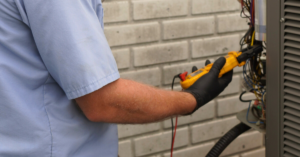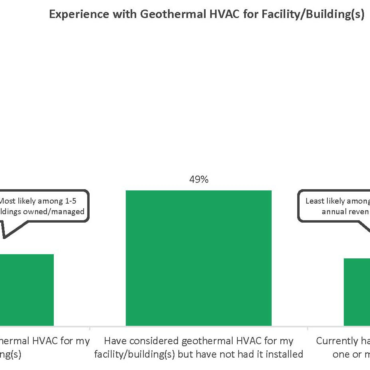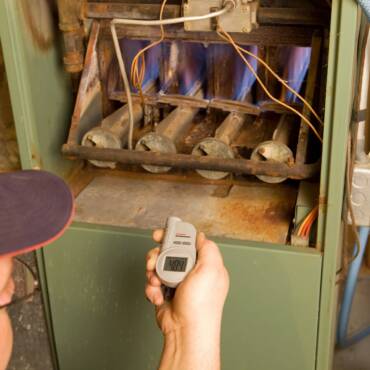Winter is coming. We all know this on an intellectual level, yet we still somehow manage to be caught out by the simplest things when it arrives. That window that won’t quite close is suddenly an issue. There’s a foot of snow on the ground but no rock salt to be found. And no matter how much you futz with the thermostat you can’t get the heat pump to turn on. We can’t help with the first two items, dear reader, but we can with the third. As the colder months approach, it’s crucial to ensure your heat pump is ready to handle the drop in temperature. Heat pump maintenance is the answer. Preparing your heat pump for winter not only guarantees consistent comfort but also maximizes energy efficiency and reduces heating costs. Heat pump maintenance can also save you from costly repairs and high utility bills, making it an essential part of winter prep.
Check and Clean Air Filters
One of the simplest yet most important heat pump maintenance tasks is cleaning or replacing air filters. Dirty filters block airflow, causing your heat pump to work harder and use more energy. Clean filters ensure optimal performance and help extend the life of your system.
Step-By-Step Guide to Cleaning/Replacing Filters:
- Turn off the heat pump.
- Locate the air filter, typically in the return air duct or indoor unit.
- Remove the filter and check for dust and debris buildup.
- If reusable, clean the filter with a vacuum or water and allow it to dry completely before reinserting. If disposable, replace it with a new one.
- Reinsert the clean or new filter and turn the heat pump back on.
Inspect the Outdoor Unit
The outdoor unit of your heat pump is exposed to the elements year-round, so it takes a beating. This makes it vital to check the unit regularly. Debris like leaves, dirt, or snow can accumulate in and around it, restricting airflow and reducing efficiency.
Tips for Outdoor Unit Maintenance:
- Clear away any debris within at least two feet of the unit.
- Trim back bushes or plants that may obstruct airflow.
- After heavy snowfalls, make sure snow isn’t piled around the unit.
- To protect the unit from extreme weather, consider using a cover designed specifically for heat pumps, ensuring that it allows for proper ventilation.
Schedule a Professional Inspection
Nothing beats the expertise of a professional HVAC technician, well-practiced in the art of heat pump services. Scheduling a yearly inspection before winter can help identify potential issues before they become costly repairs.
An HVAC Technician Will Typically Check:
- The fan and compressor for wear and tear.
- Refrigerant levels to make sure there aren’t any leaks.
- Electrical connections and safety controls.
- Overall system performance and efficiency.
In short, having an HVAC professional assess your system and perform any heat pump maintenance when the weather starts to turn cold will help prevent breakdowns when it’s really cold, i.e., when you need your heat pump the most.
Test the Thermostat Settings
The thermostat is your interaction point with the heat pump. As it controls the heat pump’s performance—performance you rely on to stay warm—it’s important to test and adjust its settings. After you ensure the thermostat is functioning properly, set it to heat mode as the weather turns colder. Not entirely sure how well the thermostat, or the rest of the system, is working? Call in an HVAC technician and he or she can help you find out for sure.
Steps to Adjust the Thermostat:
- Switch it from cooling to heating mode.
- Set the temperature to your preferred comfort level, typically between 68°F and 72°F.
- If you have a programmable or smart thermostat, set a schedule to reduce heating when you’re not home or while you’re sleeping to save on energy.
Check the Ductwork
Ductwork is the “piping” that carries warming or cooling air from the heat pump, distributing it from room to room around your house. Leaky or uninsulated ductwork can cause heat loss, making your heat pump work harder than necessary. If you want to know how to make a heat pump more efficient in winter, this is it: inspect the ductwork for any visible leaks or gaps and ensure it’s properly sealed and insulated. As always, if you’re not sure, call in a professional.
How Ductwork Impacts Efficiency:
- Leaks in ductwork can cause heat loss of up to 30%.
- Properly sealed ducts ensure warm air reaches its intended destination, reducing strain on the heat pump and lowering energy bills.
- Insulating ducts in unheated areas like basements or attics can further improve efficiency.
A Little Heat Pump Maintenance Can Go a Long Way
Preparing your heat pump for winter not only ensures consistent warmth but also helps you save on energy costs and avoid unexpected breakdowns. By cleaning filters, inspecting the outdoor unit, and checking your thermostat and ductwork, you can keep your heat pump running smoothly all winter long. Don’t get caught out by the coming winter. Heat pump services performed now can help you head off bigger problems later. And remember, when in doubt, the professionals at Holtzople are always ready to help!
Whether you require installation, repair, or maintenance, our technicians will assist you with top-quality service at any time of the day or night. Take comfort in knowing your indoor air quality is the best it can be with MOE heating & cooling services Ontario's solution for heating, air conditioning, and ventilation that’s cooler than the rest.
Contact us to schedule a visit. Our qualified team of technicians, are always ready to help you and guide you for heating and cooling issues. Weather you want to replace an old furnace or install a brand new air conditioner, we are here to help you. Our main office is at Kitchener but we can service most of Ontario's cities
Source link



